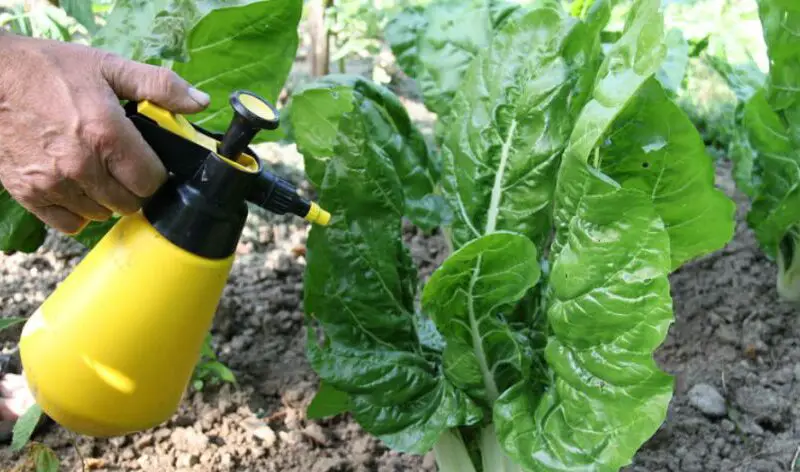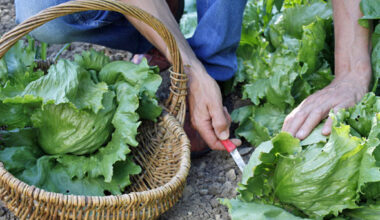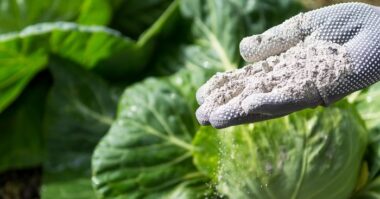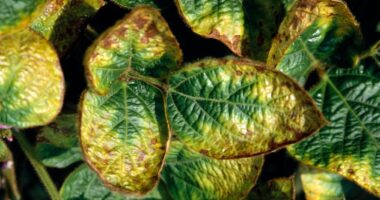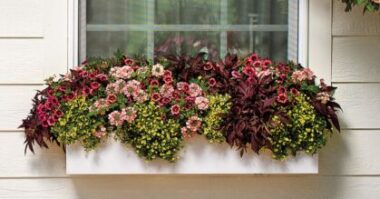Let’s face it: many of us succumb to the easy way of getting rid of weeds in the garden. Most of the time, we use chemical weed killers, thinking that they will be the most effective. The problem? They have harmful effects on the environment, but also on your health.
And not only are the soil and groundwater affected, but the presence of these chemicals can disrupt animal and plant life in the garden. The International Agency for Research on Cancer (IARC) attached to the World Health Organization (WHO) has even made chemical weed killers products to be banned! Especially since there are alternative solutions that are much less harmful to the environment… which is the case with white vinegar!
Contents
Can vinegar eliminate grass from the garden?
It is often said that white vinegar is a natural product. The truth is that white vinegar is above all industrial! Obtained from the transformation of ethanol into acetic acid, white vinegar is a powerful industrial product. White vinegar, unlike other vinegars, is not made from any alcohol. Although it is an essentially industrial product, white vinegar is not as aggressive as most household products.
The white vinegar found in stores contains 8 to 10% acetic acid. This acid acts by contact on grasses (quackgrass, bindweed, nettle…): the aerial parts of the plant are thus burned. Its action does not stop there since the white vinegar also penetrates in the sap of the plant in order to burn it completely.
Vinegar can therefore eliminate both weeds and grass, use with care!
The action of white vinegar on weeds
With the acetic acid it contains (8 or 10% in general), white vinegar is indeed a very good natural weed killer. Contrary to chemical herbicides, it does not infiltrate the plant tissue because it is a contact herbicide. To weed the paths of your exterior or the interstices of your terrace, it is a great ally. It is advised to privilege its use on grounds not intended for the culture: terrace, balcony, alleys, not inert grounds…
In addition, unlike chemical weed killers, white vinegar costs almost nothing, especially since you probably already have a bottle or two in your kitchen.
How to make a weed killer with white vinegar?
As you can see, white vinegar is an excellent natural cleaner and weed killer. But its high acid content can, in large doses, slightly disrupt soil fertility. This is why it is recommended to dilute it with water: five liters of water for 200 ml of white vinegar.
Place the mixture in a sprayer and spray on the aerial parts of the weeds.
To use it, choose a day of good weather when the sun is shining. Leave it on and after a few days, you will see that the weeds will be yellowed. All you have to do is pull them out.
For an even more effective result, some recommend adding iodized salt to the preparation. This should be used sparingly, as large quantities of salt also affect the fertility of the soil. Others also recommend adding black soap to allow the mixture to attach itself more easily to the foliage, especially in case of rain.
On which weeds should white vinegar weed killer be applied?
White vinegar is a weed killer that is most effective on soft weeds, such as those found in walkways or between patio slabs. Its action is much more limited on perennials, because their roots are more important.
If you wish to use this preparation in a flower bed, you will have to put some drops at the foot of the weeds, but do not proceed to a new application if the weeds resist.
Prevent weeds from growing back
After a natural weed control, make sure that weeds don’t grow back any time soon. Always favoring green techniques, you can mulch the ground with grass clippings or dead leaves. Natural mulch protects weed seeds from the sun and prevents them from germinating.
If grass clippings or leaves are not enough, you can also cover the soil with a tarp. After three weeks of covering, the roots will pull out easily. And if you have to dispose of cardboard boxes, they can be used as a tarp.
Is vinegar safe?
The answer is very clear: no, white vinegar as a weed killer is not safe. As you can see, white vinegar is an acidifying product that can upset the balance of your soil by disturbing the micro-organisms or even by eliminating them. This microbiology is important for plants (good or bad!) to grow.
It is therefore important to use this method sparingly, especially in vegetable gardens, gardens and flower beds. Finally, it is important to apply only a few drops or sprays to the same area, otherwise its action would be equivalent to powerful herbicides and other chemicals.
Finally, in conclusion, we can say that white vinegar is an excellent product when it comes to treating unwanted weeds in isolated areas of your property or plants growing in a patio or pebbled driveway near your grass or lawn.
If you need a weed killer for larger areas that is more environmentally friendly, we recommend baking soda instead.
